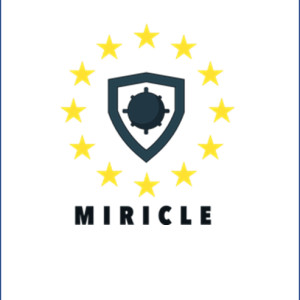 \
&
Contact us
\
&
Contact us
 \
&
Contact us
\
&
Contact us
This was 7 months ago
LocationOnline
ProgrammesThe European Commission has announced the opening of further calls with in total 8 call topics under the Digital Europe programme. Calls are expected to open on 4 July 2024.
This short info session aims to provide information on the context and content of the programme and these new call topics, requirements to participate in the programme and the support NCP Flanders can give to interested stakeholders.
Preliminary programme
10.00 - 10.05 Introduction to Digital Europe
10.05 - 10.25 Upcoming calls
10.25 – 10.40 Participation in Digital Europe: requirements, benefits and information sources
10.40 – 10.45 NCP Flanders Support
10.45 - 11.00 Q&A
Targeted public: stakeholders located in Flanders.
Language: the event will be held in English.
Registration: participation is free but registration is required via this link. The log-in instructions for the session will be send the last working day before the event.
This info session will be recorded and made available for registered users of the NCP Flanders website. NCPs reserve the right to decline any registration.
We offer news and event updates, covering all domains and topics of Horizon Europe, Digital Europe & EDF (and occasionally, for ongoing projects, Horizon 2020).
Stay informed about what matters to you.
By signing up, you can opt in for e-mail notifications and get access to
a personalised dashboard that groups all news updates and event announcements in your domain(s).
Only for stakeholders located in Flanders
Security Digital, Industry & Space Digital Europe Cybersecurity Defence

The Miricle project, ‘Mine Risk Clearance for Europe’, obtained funding under the European Defence Industrial Development programme call ‘Underwater control contributing to resilience at sea’. The main objective of the project was to achieve a European and sovereign capacity in future mine warfare and create a path for the next generation ‘made in Europe’ countermeasure solutions. In order to realise this objective, Miricle addressed various stages: studies, design, prototyping and testing. These stages inter alia included the successful testing of an XL Unmanned Underwater Vehicle, a protototyped mine disposal system and multiple innovative systems to detect buried mines. Flanders Marine Institute (VLIZ), was one of the five Belgian partners in the consortium. Within the project, VLIZ was able to forward its research on the acoustic imaging of the seabed to spatially map and visualize buried structures and objects - in this case buried mines - in the highest possible detail. VLIZ also led the work on ‘Port and Offshore Testing’, building on the expertise of the institute in the field of marine operations and technology.